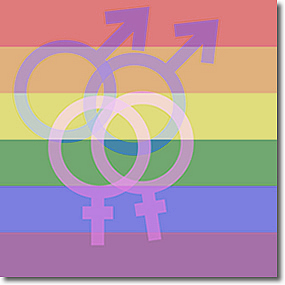 In a case that has obvious implications for employee benefit plans, the Veterans’ Administration (“VA”) has just provided survivor benefits to the partner of a service member, even though the partners were not married before the service member’s death.
In a case that has obvious implications for employee benefit plans, the Veterans’ Administration (“VA”) has just provided survivor benefits to the partner of a service member, even though the partners were not married before the service member’s death.
Tag Archives: Supreme Court
Domestic Partnership Converted Retroactively to Marriage After Death Provides Basis for Spousal Benefits
Employee benefits effects of Supreme Court same-sex marriage decision
(Posted on July 14, 2015 by Carol V. Calhoun)
 On June 26, 2015, the Supreme Court struck down all state bans on same-sex marriage in Obergefell v. Hodges. For employers, this decision raises the issue of what changes must be made in employee benefits to reflect the decision.
On June 26, 2015, the Supreme Court struck down all state bans on same-sex marriage in Obergefell v. Hodges. For employers, this decision raises the issue of what changes must be made in employee benefits to reflect the decision.
For this purpose, we will look at three categories of employers: those that have already been offering benefits to same-sex spouses, those that have not previously offered benefits to same-sex spouses, and those that have been offering benefits to domestic partners.
Employee benefits effects of the Supreme Court decision on the Affordable Care Act
(Posted on June 25, 2015 by Carol V. Calhoun)
 In King v. Burwell, the Supreme Court today upheld a key provision of the Patient Protection and Affordable Care Act (“ACA”). What is the effect of this decision on employee benefit plans? Read more.
In King v. Burwell, the Supreme Court today upheld a key provision of the Patient Protection and Affordable Care Act (“ACA”). What is the effect of this decision on employee benefit plans? Read more.
EEOC: Discrimination based on sexual orientation or transgender status is prohibited sex discrimination
(Posted on May 12, 2015 by Carol V. Calhoun)
 Federal law contains provisions forbidding discrimination based on several classifications: race, sex, veteran status, etc. However, no federal law explicitly prohibits discrimination based on sexual orientation or transgender status. As a result, many employers in states which do not have their own legislation barring discrimination based on sexual orientation or transgender status have assumed that no laws prohibited such discrimination.
Federal law contains provisions forbidding discrimination based on several classifications: race, sex, veteran status, etc. However, no federal law explicitly prohibits discrimination based on sexual orientation or transgender status. As a result, many employers in states which do not have their own legislation barring discrimination based on sexual orientation or transgender status have assumed that no laws prohibited such discrimination.
The Equal Employment Opportunity Commission (“EEOC”) has now called this assumption into question, by bringing several lawsuits treating discrimination based on sexual orientation or transgender status as a form of sex discrimination prohibited by Title VII of the Civil Rights Act of 1964. This issue is a focus of the EEOC’s Strategic Enforcement Plan for 2013-2016. Read more.
NPR Interview, “State Tax Laws ‘A Mess,’ For Same Sex-Couples and Employers.”
(Posted on March 19, 2014 by Carol V. Calhoun)
 Carol V. Calhoun was interviewed for a piece on National Public Radio’s “Here and Now” program called, “State Tax Laws ‘A Mess,’ For Same Sex-Couples and Employers,” which aired today. You can listen to the segment at this link, a summary and transcript can be found here, and the chart referenced in the story is available at this link..
Carol V. Calhoun was interviewed for a piece on National Public Radio’s “Here and Now” program called, “State Tax Laws ‘A Mess,’ For Same Sex-Couples and Employers,” which aired today. You can listen to the segment at this link, a summary and transcript can be found here, and the chart referenced in the story is available at this link..
New article: State Taxes and Married Same-Sex Couples
(Posted on March 7, 2014 by Carol V. Calhoun)
 Carol V. Calhoun‘s article, “State Taxes and Married Same-Sex Couples,” has now been published in Baltimore OUTloud. This article discusses the different approaches that each of the states has taken for state tax purposes, in the wake of the federal government’s decision to treat same-sex married couples are married for federal tax purposes.
Carol V. Calhoun‘s article, “State Taxes and Married Same-Sex Couples,” has now been published in Baltimore OUTloud. This article discusses the different approaches that each of the states has taken for state tax purposes, in the wake of the federal government’s decision to treat same-sex married couples are married for federal tax purposes.
New article: Supreme Court Same-Sex Marriage Decisions Create New Rules for Employee Benefit Plans
(Posted on October 4, 2013 by Carol V. Calhoun)
 Carol V. Calhoun‘s article, “Supreme Court Same-Sex Marriage Decisions Create New Rules for Employee Benefit Plans,” has now been published in Baltimore OUTloud. The article discusses the effect of the Supreme Court’s decisions regarding the Defense of Marriage Act and the subsequent guidance by the Internal Revenue Service and the Department of Labor on employee benefit plans.
Carol V. Calhoun‘s article, “Supreme Court Same-Sex Marriage Decisions Create New Rules for Employee Benefit Plans,” has now been published in Baltimore OUTloud. The article discusses the effect of the Supreme Court’s decisions regarding the Defense of Marriage Act and the subsequent guidance by the Internal Revenue Service and the Department of Labor on employee benefit plans.
Federal District Court Blocks Michigan Law Eliminating Health Benefits for Domestic Partners of Public Employees
(Posted on July 4, 2013 by Carol V. Calhoun)
 Michigan Public Act 297 (“Act”) prohibits public employers from providing medical and other fringe benefits to any person cohabitating with a public employee unless that person is legally married to the employee, or is a legal dependent, or eligible to inherit under the State’s intestacy laws. In a June 28 decision, U.S. District Judge David Lawson (E.D. Mich.) has issued a preliminary injunction blocking enforcement of the Act based on a finding that the plaintiffs (same-sex couples of which one works for a Michigan local government) “have stated a viable claim based on the Equal Protection Clause on which they are likely to succeed.”
Michigan Public Act 297 (“Act”) prohibits public employers from providing medical and other fringe benefits to any person cohabitating with a public employee unless that person is legally married to the employee, or is a legal dependent, or eligible to inherit under the State’s intestacy laws. In a June 28 decision, U.S. District Judge David Lawson (E.D. Mich.) has issued a preliminary injunction blocking enforcement of the Act based on a finding that the plaintiffs (same-sex couples of which one works for a Michigan local government) “have stated a viable claim based on the Equal Protection Clause on which they are likely to succeed.”
